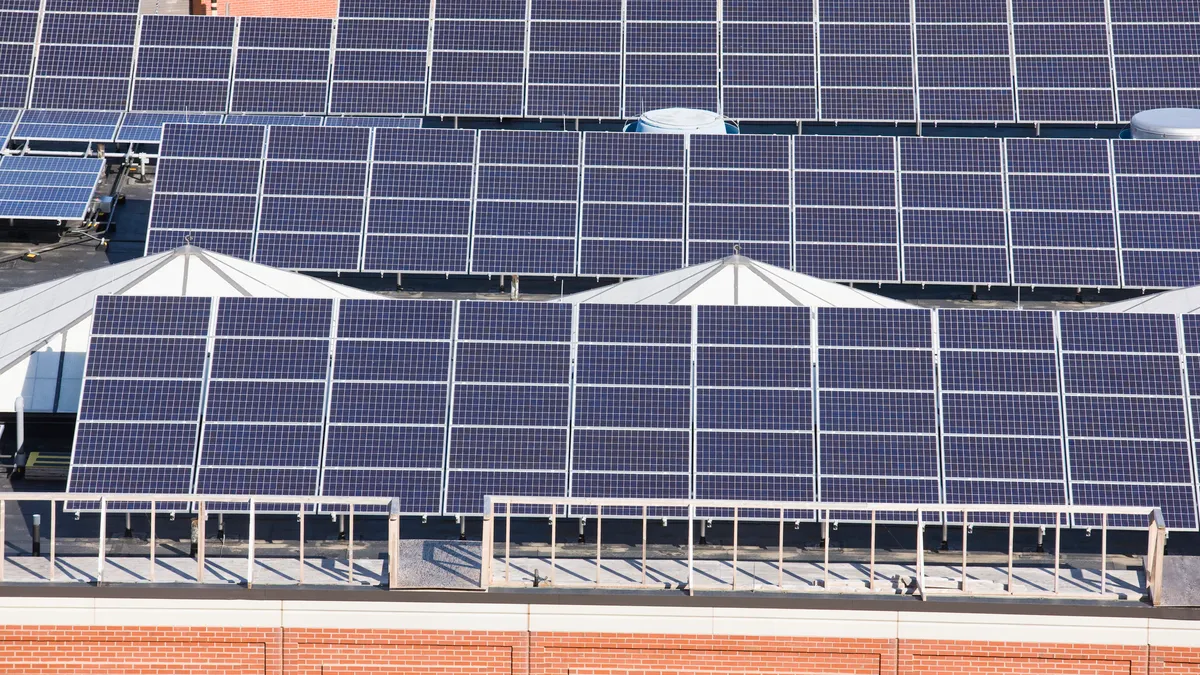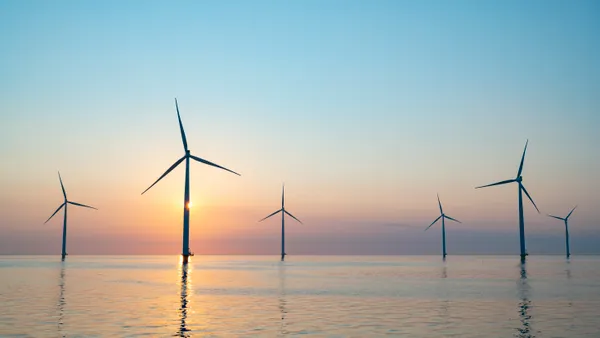Dive Brief:
- Investor interest in storage companies and some segments of the solar market is surging following the passage of the Inflation Reduction Act, according to figures from research and consulting firm Mercom Capital Group.
- Venture capital invested in solar companies shot up 150% during the first nine months of 2022, according to Mercom data, but total corporate investment in solar is down 18% compared to 2021.
- Both solar and energy storage seem likely to draw increased interest from investors in the months and years to come, although inflation and high interest rates may reduce overall investment, according to Raj Prabhu CEO and co-founder of Mercom Capital Group.
Dive Insight:
While there are still more investors chasing deals in renewable energy than there are companies and projects to invest in, a dollar might not go as far as it used to, Prabhu said of the latest investment and finance data from Mercom Capital Group.
Solar energy companies have attracted 150% more venture capital over the past nine months than in the prior year — a jump in investment made more remarkable by the fact that venture capital interest in solar has dwindled for years, Prabhu said. Venture capitalists tend to be most interested in new, scalable ideas and technologies, but over the past decade investors in solar energy have generally pursued deals with developers and in the solar projects themselves.
Energy storage has also brought in a record $22 billion in total corporate funding so far this year, according to Mercom Capital. The public listing of several energy storage companies in recent months has helped to boost this figure, Prahbu said, but it’s also reflective of growing venture capital interest in energy storage.
Total investment in solar energy companies is, however, lagging behind last year’s figures. This is partially because last year’s record-setting figures may be tough to match a second year in a row, Prabhu said. But it’s also a sign that inflation and high interest rates have cut into the overall financial market, he said.
“Inflation is not just affecting other parts of the economy. It’s also affecting solar, and solar is very sensitive, especially project funding, to interest rates,” Prabhu said. “When interest rates fluctuate, activity slows down, and we saw that this year. The whole stock market declined this year.”
But the slow-down in solar investment isn’t overly foreboding, Prabhu said. Investment in solar energy is still on track for its second-best total in six years, and solar investments have so far weathered this year’s interest rate hikes better than most other economic sectors. And then the IRA happened.
“The solar market has become huge, and VCs generally tend to follow — they like sectors that get government support, because they know this is a sure-fire market,” Prabhu said. “There’s no doubt about solar. Maturity and government support are all checked off, and it’s just about finding the quality deals to fund.”
That process of finding and closing deals can take several months, so the full impact of the IRA likely won’t be felt in the markets for a couple of quarters, Prabhu said. But so far he said he is seeing signs that it has spurred investment activity not just in the usual stalwarts like PV solar and lithium ion, but also in new technologies, materials, and, of course, manufacturing.
“We’re not talking small deals here,” Prabhu said. “Everyone has to have a gigascale manufacturing facitility if you want to be cost competitive, so the amount of funding is much higher, and there is a general recognition that this is the next big market.”














